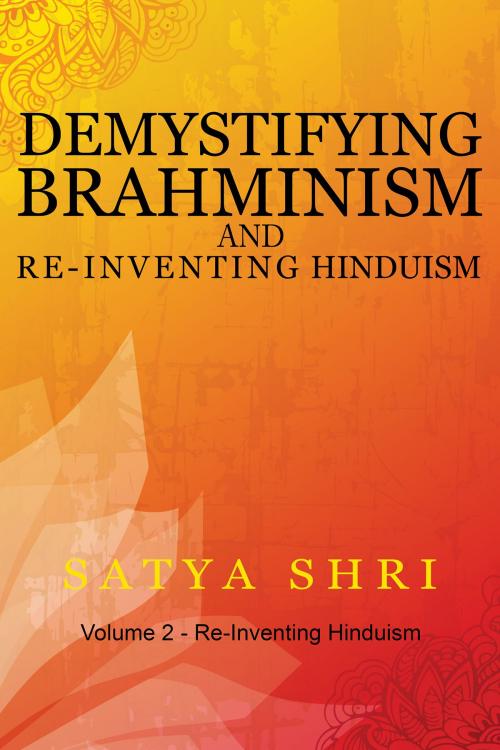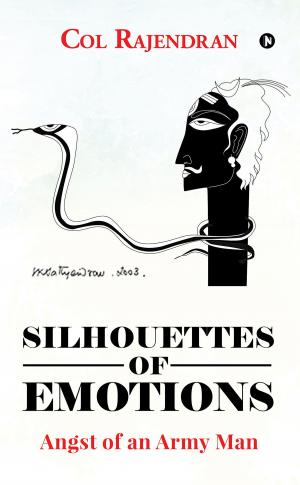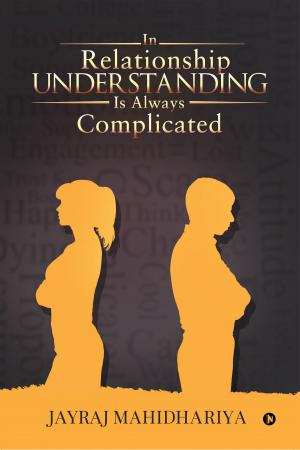Demystifying Brahminism and Re-Inventing Hinduism
Volume 2 - Re-Inventing Hinduism
Nonfiction, Religion & Spirituality, Eastern Religions, Hinduism| Author: | Satya Shri | ISBN: | 9781946515568 |
| Publisher: | Notion Press | Publication: | January 30, 2017 |
| Imprint: | Notion Press | Language: | English |
| Author: | Satya Shri |
| ISBN: | 9781946515568 |
| Publisher: | Notion Press |
| Publication: | January 30, 2017 |
| Imprint: | Notion Press |
| Language: | English |
There is nothing more miserable than to feel that emancipation is in the air and yet suffer the slavery of a mistaken idea.The author seeks to re-invent Hinduism by bringing to the fore its most fundamental postulates as:1. Worship of the monotheistic formless Brahm. 2. God-realisation through Nishkam Sewa (selfless service). 3. Social equality and brotherhood (vasudhaiva kutumbakam).4. Self-realisation through Jnana Yoga, Karma Yoga and Bhakti Yoga.5. Salvation through worldly life of Purushaarth (Dharm, Arth, Kaam, Moksha).'EK Samaj' repudiates the following attributes as excrescences and repugnant to the faith:1. Mixing philosophy and religion made Hinduism an unorganised religion.2. Worshipping numerous deities and limiting religious service to mere darshan of the idols fragmented Hinduism.3. Hereditary priesthood, as permanent intermediaries for communion with God, polluted the religion.4. Occupational ‘purity’ and ‘pollution’ camouflaged iniquitous social divisions.5. Individual instead of congregational worship smothered Hindu brotherhood.6. Pretensions of attaining Siddhis through ‘meditation and penances’ eulogised.7. Escapism in worldly renunciation honoured.8. Fatalist karma theory made Hindus pessimistic and other-worldly.9. Transmigration, reincarnation, 84-lakh births used as props for gradation of castes.10. Acceptance of Ahimsa made Hindus a doormat for the ruthless barbarians.11. Karma kand and Mantra, Tantra, Yantra etc. justified as the sole religious expressions.12. Lack of proselytisation prevented Hinduism from becoming a world religion.13. Devdasi tradition made temples the venues of entertainment and recreation.
There is nothing more miserable than to feel that emancipation is in the air and yet suffer the slavery of a mistaken idea.The author seeks to re-invent Hinduism by bringing to the fore its most fundamental postulates as:1. Worship of the monotheistic formless Brahm. 2. God-realisation through Nishkam Sewa (selfless service). 3. Social equality and brotherhood (vasudhaiva kutumbakam).4. Self-realisation through Jnana Yoga, Karma Yoga and Bhakti Yoga.5. Salvation through worldly life of Purushaarth (Dharm, Arth, Kaam, Moksha).'EK Samaj' repudiates the following attributes as excrescences and repugnant to the faith:1. Mixing philosophy and religion made Hinduism an unorganised religion.2. Worshipping numerous deities and limiting religious service to mere darshan of the idols fragmented Hinduism.3. Hereditary priesthood, as permanent intermediaries for communion with God, polluted the religion.4. Occupational ‘purity’ and ‘pollution’ camouflaged iniquitous social divisions.5. Individual instead of congregational worship smothered Hindu brotherhood.6. Pretensions of attaining Siddhis through ‘meditation and penances’ eulogised.7. Escapism in worldly renunciation honoured.8. Fatalist karma theory made Hindus pessimistic and other-worldly.9. Transmigration, reincarnation, 84-lakh births used as props for gradation of castes.10. Acceptance of Ahimsa made Hindus a doormat for the ruthless barbarians.11. Karma kand and Mantra, Tantra, Yantra etc. justified as the sole religious expressions.12. Lack of proselytisation prevented Hinduism from becoming a world religion.13. Devdasi tradition made temples the venues of entertainment and recreation.















